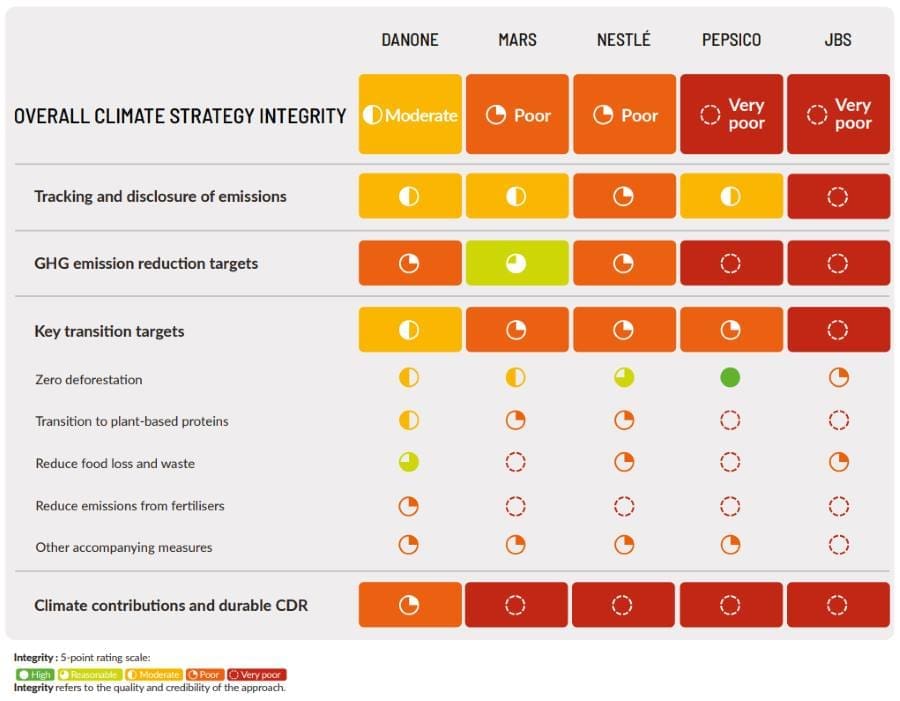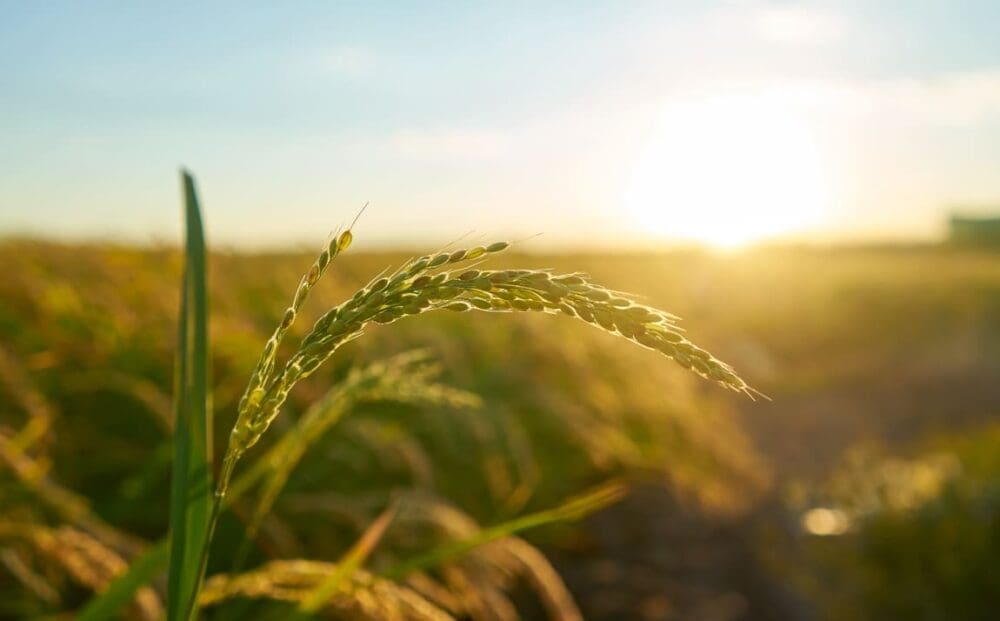Paris, France | AFP | Muser NewsDesk
Nestle, PepsiCo and other agri-food giants are “unlikely” to bring about meaningful greenhouse gas reductions in the sector with their current climate policies, according to a report published Tuesday.
The annual report by the NewClimate Institute and Carbon Market Watch analysed the climate strategies of five of the world’s top 10 food and agriculture corporations.
US group PepsiCo and Brazilian meatpacking giant JBS were slapped with the lowest rating of “very poor”, while Mars and Nestle were ranked “poor”. French brand Danone was given a “moderate” rating.
“We find that agrifood companies present measures that are unlikely to lead to structural, deep emission reductions in the sector,” the report said.
The study identified five key areas for reducing emissions: commitments to fight deforestation, a transition to more plant-based proteins, reducing chemical fertilisers, reducing waste, and the energy transition of industrial sites, packaging and transport.
But it found that plant-based protein products were seen as “merely add-ons, rather than substitutes for dairy and meat products” — which would reduce farming emissions — at JBS, a meat specialist, and Nestle, a key player in the dairy industry.
“Danone is the only one of the five assessed companies with a quantitative methane reduction target… associated with fresh milk production,” the authors wrote.

‘Offsetting’ risk
Agricultural emissions are mainly due to livestock farming, particularly cattle, which give off methane when they burp, and the use of fertilisers, which release nitrous oxide — the third most potent greenhouse gas after methane and CO2.
PepsiCo and Nestle are doing fairly well with their deforestation goals, but “there is likely to be a mismatch between companies’ reported progress… and actual rates of deforestation in their supply chains, due to a lack of data transparency,” the report said.
The study pointed to persistent illegal deforestation linked to the JBS supply chain, with large areas of forest razed to make way for livestock.
“None of the five assessed agrifood companies acknowledges the need to reduce fertiliser use on farms,” the authors said, adding that Nestle and Danone only mention replacing synthetic fertilisers with natural ones.
Regarding food waste, “only Danone has a credible and ambitious food loss and waste target,” it said.
“Commitments and progress on reducing food loss and waste are noticeably absent from companies’ decarbonisation strategies.”
Reduction targets are also threatened by “offsetting” mechanisms, in which emissions are compensated for by investment into environmental projects.
The report said emissions avoided through offsetting mechanisms should be counted separately from a company’s own emissions reductions and those of its supply chain.
“Nestle, for example, has indicated that up to 80 percent of its target could be met using land-based removals,” it said.
“This raises concerns about the transparency and robustness of already claimed emission reductions.”
Danone’s rating was also downgraded this year as the group “is now explicit about its intention to count” offsetting to achieve its reduction target.
The report called on bodies that certify companies’ climate strategies, such as SBTi or GHG Protocol, to clarify how firms can use offsetting mechanisms to reach their targets.
mdz/sb/jum/as/dhw/cms
© Agence France-Presse
More information:
The full 2025 Corporate Climate Responsibility Monitor report will be available in July. ‘Food and agriculture deep dive’ [Corporate Climate Responsibility Monitor 2025] read/download here.
Article Source:
Press Release/Material by Mathilde Dumazet | AFP
Featured image credit: wirestock | Freepik




